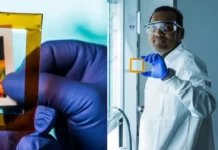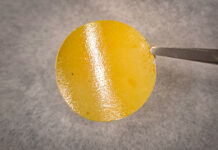 A plastic-eating protein grown in a British laboratory could revolutionize recycling and prevent thousands of tonnes of non-biodegradable waste clogging up landfill sites and the world’s oceans.
A plastic-eating protein grown in a British laboratory could revolutionize recycling and prevent thousands of tonnes of non-biodegradable waste clogging up landfill sites and the world’s oceans.
The enzyme, created by accident during tests by researchers from Portsmouth University, is the first known protein capable of digesting polyethylene, one of the most commonly used plastics for consumer goods.
The breakthrough was made inadvertently when tests were conducted on a naturally occurring bacteria found in a Japanese recycling center, with the X-ray experiments causing it to mutate into a more powerful enzyme.
Tests showed that the lab-made mutant had a supercharged ability to break down polyethylene terephthalate (PET), one of the most popular forms of plastic employed by the food and drinks industry.
Bottles made from PET are used to package 70 percent of soft drinks, fruit juices and mineral waters sold in shops and supermarkets, according to the British Plastics Federation. Although it is said to be highly recyclable, discarded PET persists for hundreds of years in the environment before it degrades.
Read more: Plastic-eating protein created in British laboratory could bring about recycling revolution
thumbnail courtesy of telegraph.co.uk















